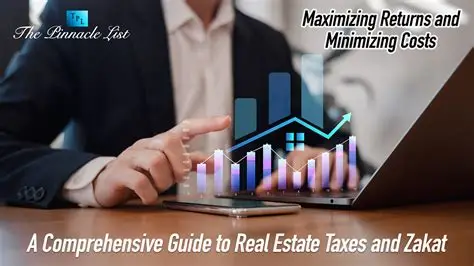Embark on a journey into the realm of commercial real estate property management, where the intricate balance of responsibilities, skills, and legal compliance shapes the landscape of success for property owners and managers alike.
Delve deeper into the core skills, legal considerations, tenant relations, maintenance operations, and financial management that define the essence of effective commercial property management.
Overview of Commercial Real Estate Property Management
Commercial real estate property management involves overseeing and maintaining income-producing properties, such as office buildings, retail centers, and industrial facilities. Property managers play a crucial role in ensuring the efficient operation and financial performance of these assets on behalf of property owners.
Key Responsibilities of Property Managers in Commercial Real Estate
- Lease Administration: Managing leases, rent collection, and lease renewals to ensure consistent cash flow.
- Maintenance and Repairs: Organizing routine maintenance, repairs, and renovations to uphold property value and tenant satisfaction.
- Tenant Relations: Addressing tenant concerns, handling complaints, and resolving disputes to maintain positive relationships.
- Financial Management: Budgeting, forecasting, and financial reporting to optimize property performance and profitability.
- Risk Management: Identifying and mitigating risks, ensuring compliance with regulations, and maintaining proper insurance coverage.
Importance of Effective Property Management in Maximizing Returns
Effective property management is essential for maximizing returns for property owners by ensuring the property operates efficiently, remains well-maintained, and attracts and retains quality tenants. By optimizing revenue streams, minimizing expenses, and enhancing property value through strategic management practices, property managers can help property owners achieve their financial goals and maximize the potential of their real estate investments.
Essential Skills for Commercial Property Managers
Successful commercial property management requires a diverse set of skills to effectively oversee and maintain properties. Let's delve into the essential skills that commercial property managers must possess to excel in their roles.
Financial Acumen
Having strong financial acumen is crucial for commercial property managers as they are responsible for budgeting, forecasting, and financial reporting. They must be able to analyze financial statements, understand market trends, and make strategic decisions to maximize the property's profitability.
In addition, negotiating leases, managing expenses, and optimizing revenue streams are all part of the financial responsibilities that require a deep understanding of financial concepts.
Communication Skills
Communication is key in the world of commercial property management. Property managers need to effectively communicate with tenants, contractors, property owners, and other stakeholders to ensure smooth operations and maintain positive relationships. Clear and concise communication helps in resolving conflicts, addressing maintenance issues promptly, and negotiating lease agreements.
Strong interpersonal skills, active listening, and the ability to convey complex information in a simple manner are essential for successful property management.
Legal and Regulatory Compliance in Commercial Property Management
When it comes to commercial real estate property management, understanding the legal framework is crucial for ensuring smooth operations and avoiding any potential legal issues. Compliance with regulations and laws is a top priority for property managers to maintain a safe and efficient environment for tenants and protect the interests of property owners.
The Legal Framework in Commercial Property Management
Commercial property managers must adhere to a wide range of laws and regulations at the federal, state, and local levels. These may include zoning laws, building codes, lease agreements, fair housing laws, environmental regulations, and more. It is essential to stay updated on any changes or new requirements to avoid any violations.
Importance of Compliance
- Ensures the safety and well-being of tenants and employees
- Protects the reputation of the property management company
- Helps avoid costly fines, penalties, and legal disputes
- Maintains a positive relationship with regulatory authorities
Consequences of Non-Compliance
- Legal liabilities and lawsuits from tenants or third parties
- Financial penalties and fines imposed by regulatory agencies
- Damage to the reputation of the property management company
- Risk of property closure or loss of business licenses
Tenant Relations and Leasing
Attracting and retaining tenants in commercial properties is crucial for the success of property management. A positive tenant experience can lead to long-term leases, stable occupancy rates, and a strong reputation in the market.
Strategies for Attracting and Retaining Tenants
- Offer competitive rental rates and incentives to attract new tenants.
- Maintain the property in good condition and provide excellent customer service to retain existing tenants.
- Organize tenant events and community-building activities to create a sense of belonging and loyalty.
- Implement efficient communication channels to address tenant concerns and requests promptly.
Leasing Commercial Spaces and Negotiating Lease Agreements
- Market the property effectively through various channels to reach potential tenants.
- Screen potential tenants rigorously to ensure they are a good fit for the property and can meet lease obligations.
- Negotiate lease terms, including rent, lease duration, and any special clauses, to achieve a mutually beneficial agreement.
- Document all lease agreements accurately and ensure compliance with legal requirements.
Importance of Maintaining Positive Tenant Relations
- Positive tenant relations lead to higher tenant satisfaction, lower turnover rates, and increased referrals.
- Good relationships with tenants can result in smoother lease renewals and fewer disputes over lease terms.
- Tenant retention is cost-effective compared to finding new tenants, making it essential for long-term success in commercial property management.
Maintenance and Property Operations
Property managers play a crucial role in overseeing the maintenance and operations of commercial properties. They are responsible for ensuring that the property is well-maintained, safe, and attractive to tenants and visitors.
Preventative Maintenance Strategies
- Regular Inspections: Property managers conduct routine inspections to identify any maintenance issues before they become major problems.
- Scheduled Maintenance: Implementing a schedule for routine maintenance tasks such as HVAC system checks, roof inspections, and landscaping can help prevent costly repairs.
- Proactive Repairs: Addressing minor maintenance issues promptly can prevent them from escalating into larger problems that could disrupt operations or inconvenience tenants.
- Vendor Management: Property managers work with reliable vendors and contractors to ensure that maintenance and repair work is completed efficiently and to a high standard.
Handling Emergencies and Repairs
- Emergency Response Plan: Property managers develop and implement emergency response plans to address unexpected events such as fires, floods, or power outages.
- 24/7 Availability: Property managers must be available around the clock to respond to emergencies and coordinate repairs to minimize disruptions for tenants.
- Communication: Keeping tenants informed about maintenance issues, repairs, and any disruptions to services is essential for maintaining positive tenant relations.
- Budget Management: Property managers must balance the need for maintenance and repairs with budget constraints to ensure that the property remains financially viable.
Financial Management and Reporting
Financial management is a critical aspect of commercial property management, as it involves handling the finances and budgeting for the property to ensure its profitability and sustainability. Effective financial management also includes forecasting future financial needs and making strategic decisions to optimize property performance.
Budgeting and Forecasting
- Property managers are responsible for creating and managing budgets for the property, including expenses for maintenance, repairs, utilities, and other operational costs.
- Forecasting involves predicting future financial needs based on current trends, market conditions, and upcoming expenses to ensure the property remains financially stable.
-
Accurate budgeting and forecasting help property managers allocate resources efficiently, plan for contingencies, and maximize returns on investment.
Financial Reporting for Property Performance
- Financial reporting involves tracking and analyzing the property's financial performance, including income, expenses, occupancy rates, and overall profitability.
- Property managers use financial reports to assess the property's financial health, identify areas for improvement, and make data-driven decisions to enhance profitability.
-
Regular financial reporting is essential for investors, owners, and stakeholders to assess the property's performance and make informed decisions regarding the property's future.
Collaboration with Accountants and Financial Professionals
- Property managers work closely with accountants and financial professionals to ensure accurate financial records, compliance with accounting standards, and timely reporting.
- Accountants provide expertise in financial management, tax planning, and financial analysis, helping property managers make informed financial decisions for the property.
-
Effective collaboration between property managers and financial professionals is crucial for maintaining financial transparency, optimizing tax strategies, and maximizing the property's financial performance.
Final Review
In conclusion, mastering the art of commercial real estate property management involves a harmonious blend of expertise, communication, and foresight to navigate the dynamic landscape of the commercial property market successfully.
User Queries
What are the key responsibilities of property managers in commercial real estate?
Property managers in commercial real estate are tasked with overseeing day-to-day operations, tenant relations, maintenance, lease agreements, and ensuring compliance with legal regulations.
How important is financial acumen in managing commercial properties?
Financial acumen is crucial in managing commercial properties as it involves budgeting, forecasting, tracking performance, and making informed financial decisions for long-term success.
What are the consequences of non-compliance in commercial property management?
Non-compliance in commercial property management can lead to legal issues, fines, reputational damage, and potential loss of tenants or property value.













